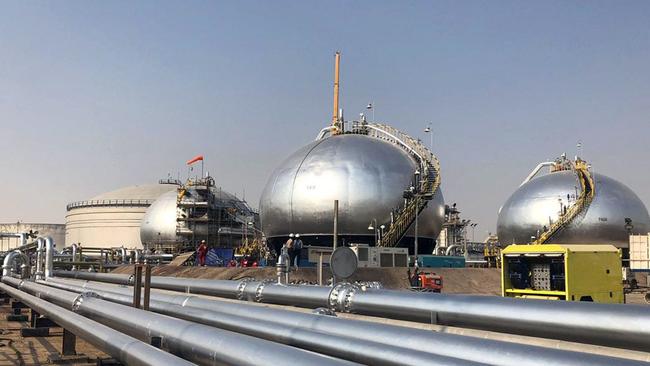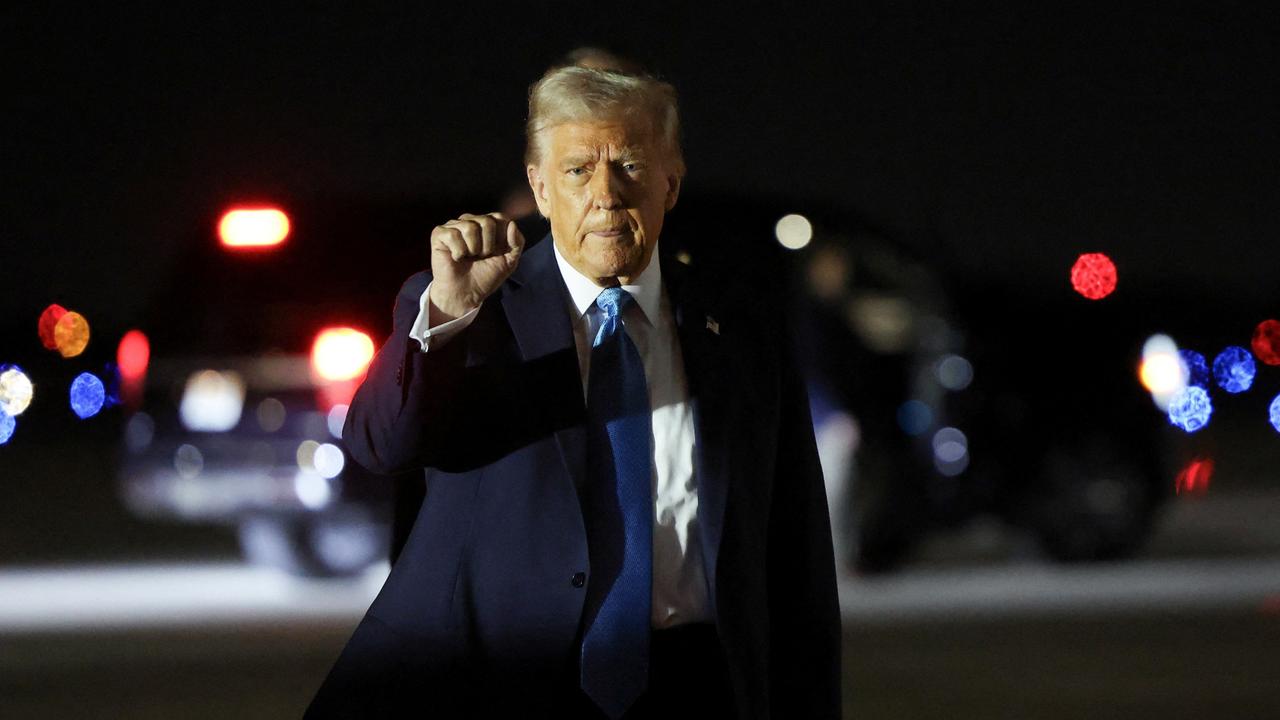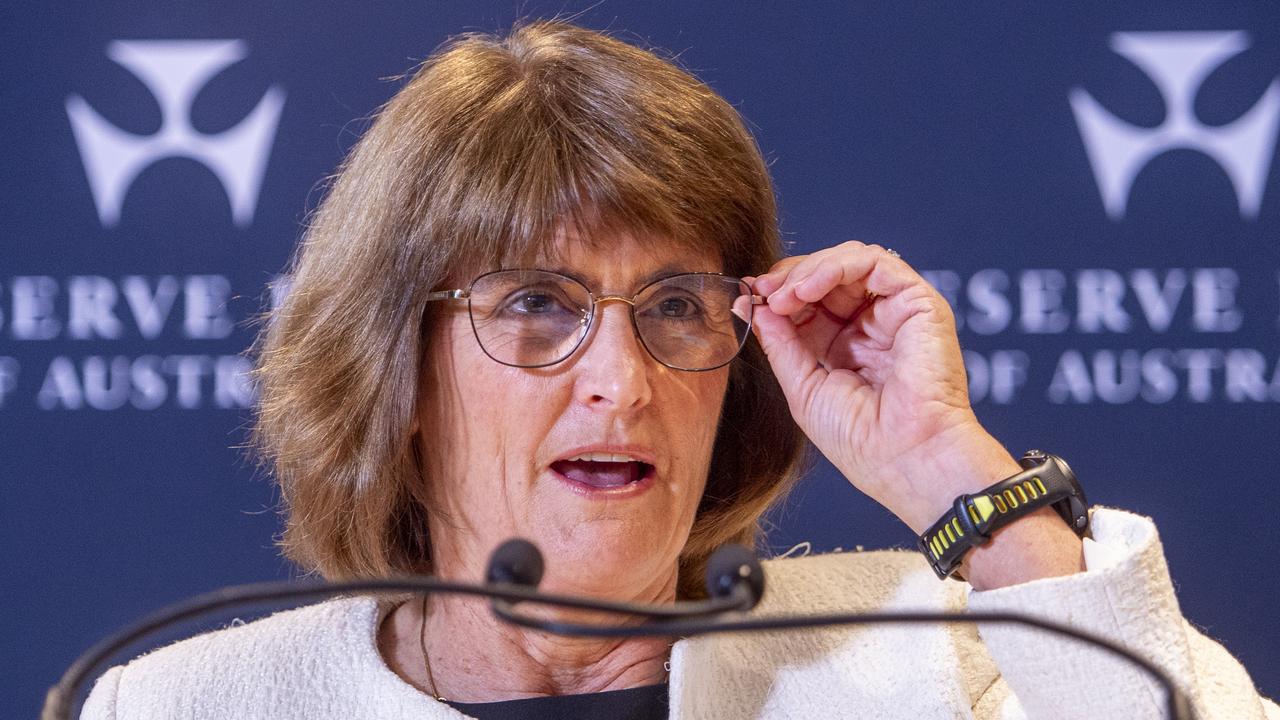Saudi Arabia transfers Aramco shares worth $US80bn to wealth fund
The transfer of a 4 per cent stake in the world’s most valuable oil company is part of the Kingdom’s efforts to diversify the energy-dependent economy.

Saudi Arabia has transferred shares worth about $US80bn in oil giant Aramco to its wealth fund as part of efforts to diversify the kingdom’s hydrocarbon-dependent economy.
The transfer of a 4 per cent stake in state-owned Saudi Arabian Oil Co, known as Aramco, will support the Public Investment Fund’s plan to grow its assets under management to more than $US1 trillion by 2025, from about $US480bn, the Saudi government said.
Stung by low energy prices in recent years that forced Saudi Arabia to cut investments and subsidies at home, the government under Crown Prince Mohammed bin Salman, the kingdom’s day-to-day ruler, is attempting to widen its sources of non-oil income in a hurry. The risk of deeper economic trouble as the world pivots away from hydrocarbons has accelerated that push. High oil prices are helping finance some of those plans.
The Saudi government, which will remain the largest shareholder in Aramco with a stake of more than 94 per cent, has sought to monetise the country’s massive oil assets and use the proceeds to invest in industries outside of oil as part of Prince Mohammed’s plan to restructure the economy by 2030.
He has tasked PIF to invest in companies and industries untethered to hydrocarbons. The government had also transferred the $US29.4bn it raised from Aramco’s initial public offering in 2019 on the Saudi stock exchange to the PIF to deploy.
PIF is planning to use the Aramco stake as collateral to raise lower-cost debt in the international markets, people familiar with the wealth fund’s plan said. But other options remain open.
Besides raising debt, analysts say PIF could sell the shares in the market in phases or in chunks to strategic investors. The wealth fund has multiple options to monetise the Aramco stake and, unlike the government, can be more discreet with its fundraising plans.
Earlier this month, the kingdom restarted plans to list more shares of Aramco, the world’s most valuable oil company, with an ambition to sell as much as a $US50bn stake, which at current valuations would be 2.5 per cent of the company. The listing of shares would be by far the largest in the history of capital markets and could prove difficult to pull off.
Riyadh has floated several plans over the years aimed at raising funds via Aramco, some of which have ultimately faltered or been abandoned.
The share transfer to PIF will help bolster the fund’s strong financial position and its high credit rating. Ratings agency Fitch has assigned PIF an “A” rating, while Moody’s gave it an “A1” rating, as the fund prepares to tap the international debt markets.
The fund started raising bank debt in 2018 with an $US11bn facility, followed by a $US10bn loan in 2019 that was repaid a year later. Its governor, Yasir al-Rumayyan, said in September that PIF was working with BlackRock on an environmental, social and governance framework and planned to issue its debut green bonds soon.
Meanwhile, the wealth fund will also start receiving dividends from Aramco and can market itself as a bigger fund while competing with others for global assets.
The fund, which had assets under management of about $US150bn in 2015, has used the cash it has received or raised since then to invest in businesses as diverse as electric-vehicle manufacturer Lucid Motors, Citigroup and the Premier League soccer club Newcastle United. It invested billions in SoftBank’s Vision Fund.
It has also played a more active role in the global markets after receiving $US40bn from the kingdom’s reserves in early 2020, and plans to invest another $US10bn in listed stocks this year.
Some PIF officials, however, have privately questioned the fund’s strategy, given its mixed record investing internationally and its struggles to attract significant foreign capital to help finance domestic projects.
Some foreign investors also became cautious on plans in the kingdom after men working for Prince Mohammed killed dissident journalist Jamal Khashoggi in late 2018. Riyadh says the crown prince wasn’t involved in the killing.
The Wall Street Journal


